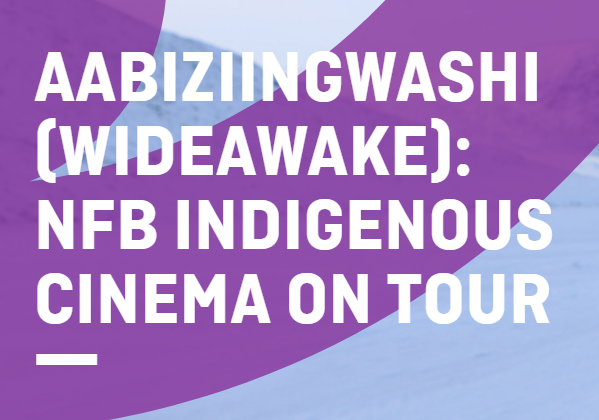Photo courtesy National Film Board website
The National Film Board of Canada is doing a cross country tour of films and documentaries that tell stories of Indigenous people through the eyes of Indigenous filmmakers.
The tour is #Aabiziingwashi (#WideAwake): NFB Indigenous Cinema on Tour and features stories of our land as told by First Nations, Métis, and Inuit filmmakers. Aabiziingwashi means ‘wide awake’ or ‘unable to sleep’ in Anishinaabe, and uses the power of cinema as a universal language, to build new understandings and connections between Indigenous and non-Indigenous Canadians.
Michelle van Beusekom is an executive director with the NFB and says the films provide powerful insight into the lives of First Nation, Metis and Inuit people.
“These films can be affirming to see what many of us have known and understood, but to see them told in a film from the Indigenous point of view, it shows how powerful film can be as a medium,” says van Beusekom.
One of the stops on the tour is this week (Thursday) at Waskesiu Lake where the film Angry Inuk will be shown. The story follows a group of Inuit people and their campaign to challenge the established perceptions on seal hunting. It shows how they use social media and their own style of humor and justice to tell their story of how the ban on seal products by the European Union has affected their livelihood and survival.
Van Beusekom says the tour is unique in that any community can request a screening from the two hundred and fifty different Indigenous films in the NFB library.
“Every week or every couple of weeks, the NFB has been receiving inquiries on how the tour can make a stop in their community,” she says.
Many of the screenings are free of charge, but van Beusekom says in some places, a fee may have to be charged to cover the cost of bringing the film in.
A second stop in the province is set for July 5 in La Ronge, when the documentary “Birth of a Family” is shown. This film is Shot by Tasha Hubbard of Saskatoon, about Betty Ann Adam of Saskatoon. Both are Indigenous women taken away from their parents during the 60s Scoop. They grew up in a white family and met their blood relatives late in life. This will be held at the Jonas Roberts Memorial Community Centre Hall at 10:30 am.
Van Beusekom says if people are interested in requesting a screening in their community, they can contact the National Film Board through their website at http://wideawake.nfb.ca/ and they can also look through the archives to see what is available.
